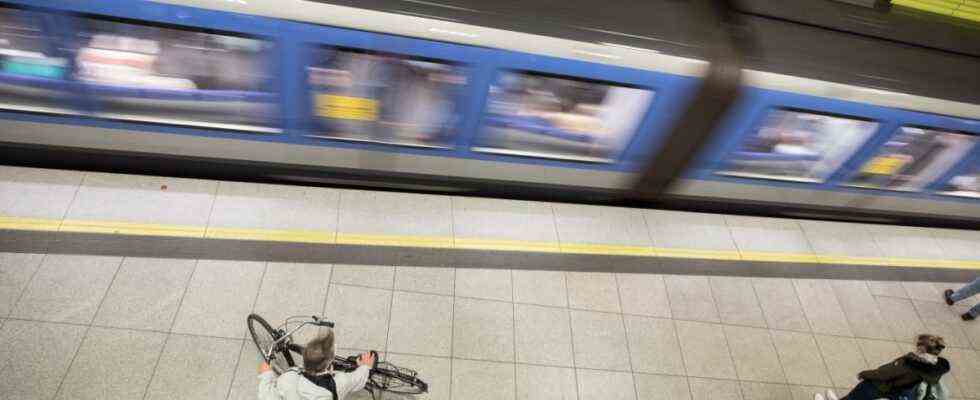The extension of underground line 5 from Laimer Platz to Pasing station will be significantly more expensive than expected. Work is scheduled to start in early 2022, the only thing missing is the approval decision. The building committee of the city council actually wants to take it on Tuesday. But according to a new template from the building department, the total is now 988 million euros, including a risk reserve of 90 million euros. In a decision from 2015, there was talk of a total cost of 751 million euros, at that time the price included a risk reserve of 112 million as well as the ancillary costs for work at the Pasing train station and tram line 19, the disposal of contaminated sites and planning services. The city council’s general assembly has the final say.
The building department has calculated the new total amount based on the results of the tenders. The reason given for the price increase is the general increase in construction prices of 35 percent, but also several technical requirements that have changed since the route was approved in 2015. European standards have superseded earlier national standards, which results in additional work during construction. In addition, there are findings from the investigation of the subsoil: The diaphragm walls that support the excavation pit laterally must be dug deeper. The requirements for fire protection and the costs for modern technical systems have also increased.
The city council had initiated the extension of the U5 without knowing whether it would be funded by the federal government and the Free State. The city would have financed the subway itself – according to the price estimate at the time. In the summer of this year, however, the Federal Ministry of Transport announced that the federal government would take the project into account when updating the Municipal Transport Financing Act until 2025 and that it was basically prepared to support it “within the scope of the financial possibilities”.
The building department assumes that the federal government could assume 75 percent of the construction costs, the Free State an additional 15 percent. The prerequisite, however, is that the rules for funding transport projects are really changed. The outgoing Transport Minister Andreas Scheuer (CSU) had promised this in June and attested the U5 “best possible conditions” for eligibility. In addition to economic efficiency, the climate protection aspect will also be taken into account in the future. According to the current situation, the U5 extension would only be partially eligible for funding; the building department estimates the grants possible today at 150 to 200 million euros. The city would be left with an enormous sum.
It is not to be expected that the city council will pull the rip cord at the last minute in view of the rising costs. Nevertheless, there is still resentment about the plans – from a side that is actually zealously supporting the traffic turnaround: The Bund Naturschutz (BN) criticizes that in the first construction phase alone in the Gotthardstrasse area, 530 trees with a trunk circumference of more than 80 centimeters have to be felled . At this point, the subway tunnel must be built using the so-called cover construction method, i.e. a construction pit is first dug, on which a concrete cover is then placed. But because car traffic also needs a spare lane, the trees stand in the way. Only to the west of Willibaldstrasse will the tunnel be dug by mining, completely underground and in a way that is gentle on the trees.
A changed track layout for the proposed parking facility, as suggested, has not been checked, criticizes the BN. The planning does not meet the requirements of climate change. The conservationists are also not satisfied with the fact that new trees should be planted after construction. Large trees play a key role in adapting to climate change as well as for people’s quality of life. Newly planted trees only developed their full effectiveness for the urban climate in terms of shading, cooling and oxygen production after 40 years.
“Climate change is advancing and we already need every large tree that will reduce the further heating of our city,” says Angela Burkhardt-Keller, who, among other things, takes care of tree protection at the BN. In Munich around 2000 trees are felled each year and not replaced. That is simply too much for a city that wants to be fit for the future. The Federation of Nature Conservation demands that the plans for the U5 extension should be checked again, but apparently no longer believes that this will happen. In any case, the club is planning an action in which from January 1st, the people of Munich will say goodbye to their trees with signs.

